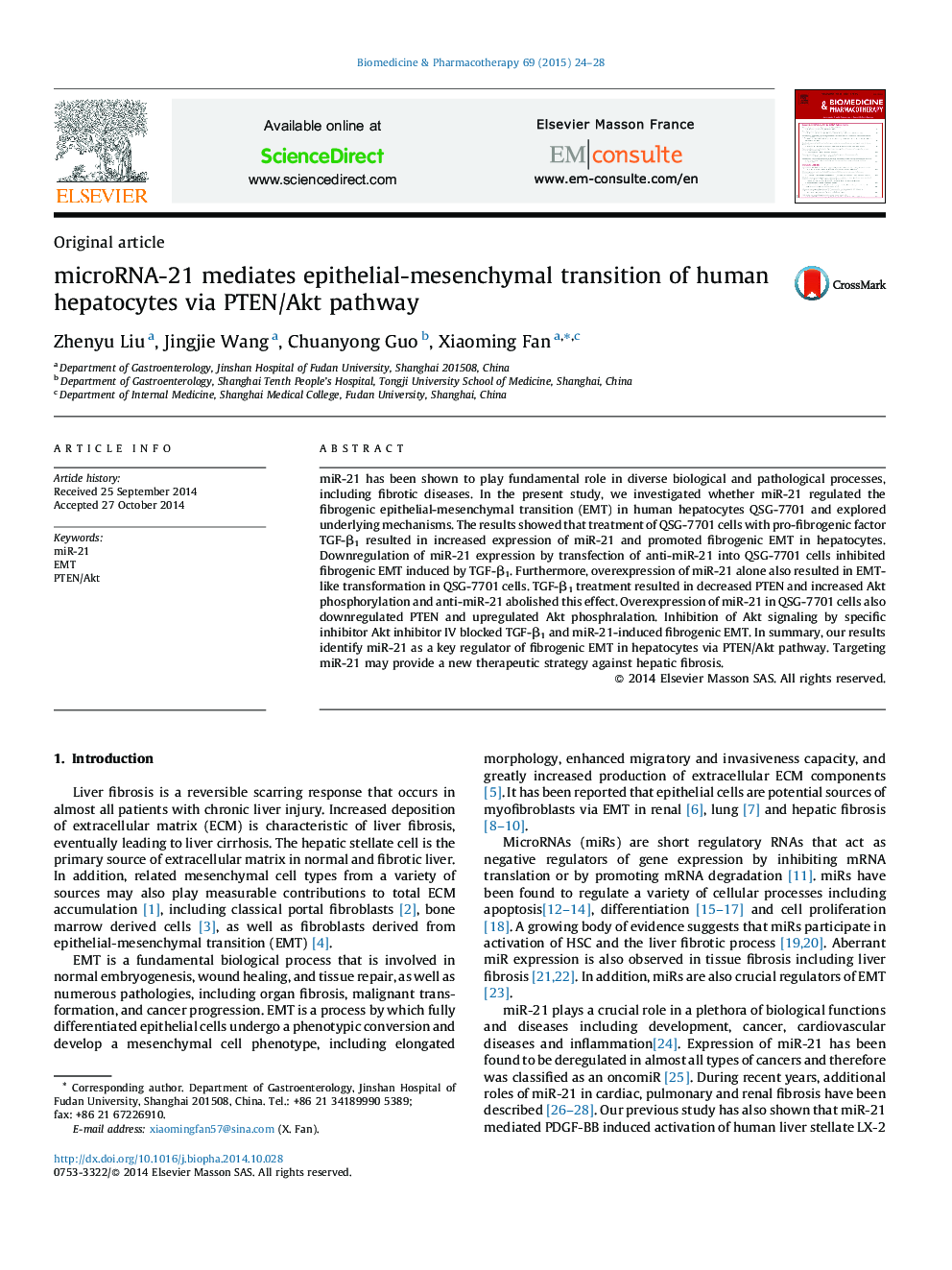| Article ID | Journal | Published Year | Pages | File Type |
|---|---|---|---|---|
| 2524113 | Biomedicine & Pharmacotherapy | 2015 | 5 Pages |
miR-21 has been shown to play fundamental role in diverse biological and pathological processes, including fibrotic diseases. In the present study, we investigated whether miR-21 regulated the fibrogenic epithelial-mesenchymal transition (EMT) in human hepatocytes QSG-7701 and explored underlying mechanisms. The results showed that treatment of QSG-7701 cells with pro-fibrogenic factor TGF-β1 resulted in increased expression of miR-21 and promoted fibrogenic EMT in hepatocytes. Downregulation of miR-21 expression by transfection of anti-miR-21 into QSG-7701 cells inhibited fibrogenic EMT induced by TGF-β1. Furthermore, overexpression of miR-21 alone also resulted in EMT-like transformation in QSG-7701 cells. TGF-β1 treatment resulted in decreased PTEN and increased Akt phosphorylation and anti-miR-21 abolished this effect. Overexpression of miR-21 in QSG-7701 cells also downregulated PTEN and upregulated Akt phosphralation. Inhibition of Akt signaling by specific inhibitor Akt inhibitor IV blocked TGF-β1 and miR-21-induced fibrogenic EMT. In summary, our results identify miR-21 as a key regulator of fibrogenic EMT in hepatocytes via PTEN/Akt pathway. Targeting miR-21 may provide a new therapeutic strategy against hepatic fibrosis.
